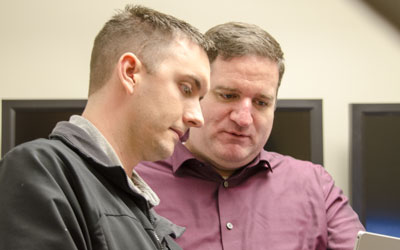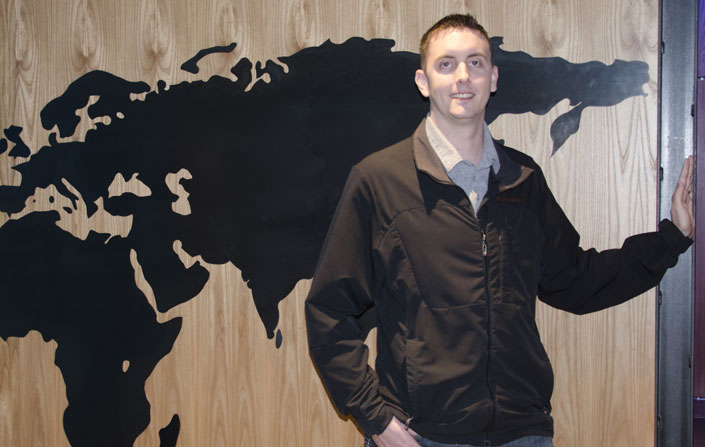In their own voice: Mentoring to give back

Zane Coppedge
Current Title: Security developer engineer, Cyber Defense Operations Center, Microsoft
Former Title: Staff sergeant, Army
When I decided to leave the Army, it was kind of a make-or-break moment: Either I get out and pursue a whole new career path as a civilian, or I stay in and make the military a career. I’d served more than eight years in the Army as a Korean linguist. During that time I spent three years in Korea and a combined 19 months in Afghanistan. So, in that eight-year period, I spent maybe two years in the U.S., and that time was heavily broken up between deployments. I wanted to spend more time with my wife, maybe start a family, so I decided it was time to leave.

I began looking at transition programs and classes at Joint Base Lewis-McChord Education Center, and one of the counselors mentioned Microsoft Software & Systems Academy (MSSA). Initially I was nervous about leaving the Army, but when I started looking at the MSSA program, it just made sense. It made me feel like there was a path that I could follow. Now granted, it wasn’t a guaranteed path, but it was a path I could take to get out and be successful and, you know, not have to eat ramen for the next three years while going to college.
I actually took two years of software development classes in high school. But that was 10 years before I joined MSSA, so I had a lot to catch up on. MSSA gave me a chance to get my head in the game and really start thinking about the business side of the tech world. I knew very basic coding, but how to interact with a team of developers, how to be agile — that’s what the program really showed me. I found that it was similar to a lot of things we did in the military, so it really connected a lot of dots for me.
In the military I worked with Korean nationals, Afghanis, people in other countries’ military services and people in other branches of the American services. Sometimes the way those people did things was totally different than the way we conducted ourselves, or they might have had different motives entirely. Understanding those dynamic relationships and having experience working in very diverse environments where people have different goals has really helped me in my job at Microsoft, where I’m working with teams that may be spread across the globe. In addition, I’ve been able to take some of the real, deep analytical skills and agility that I learned in the military and apply them directly to my work.
I came through the second MSSA cohort, so the MSSA mentors we had were the guys who had just graduated. Throughout the process, having them share their experiences, such as the challenges they had found in the hiring process, was really valuable. It gave me a window into life at Microsoft. And when I first started my new job and thought to myself, “Wow, I wish somebody had told me about this,” I realized I wanted to give that to the guys coming through MSSA after me, because maybe it would help them be successful. So I’ve been an MSSA mentor basically since I started at Microsoft about a year and a half ago. I’ve probably put in at least 100 hours of mentoring, and then I’ve also worked outside MSSA to help get former service members placed in jobs either here or with some of our vendors.
I really love working with veterans; I really love the fact that I have this great pool of guys that I can reach into and have a good, reliable worker. These are guys that do things like learn algebra to put a mortar round over a hill onto somebody they can’t even see. They know how to do all these different, weird, interesting tasks that most people will never even have to think about. The fact that they can learn one of those tasks while they’re stressed out means they can come into a tech job and pick anything up and run with it.

A lot of service members who are looking at transitioning out tend to freeze up: They’re so used to being a soldier or an airman or a Marine that they don’t know how to focus on their futures. What I tell the people I mentor is that they need to really understand that they’re getting out of the military. At that point, their focus should be on successfully getting out of the military and deciding on that next path.
My path led to Microsoft, and I couldn’t have asked for a better outcome. I actually got the call 20 minutes before I officially separated from the Army. I didn’t even get to be a jobless bum for five minutes. I really had the trifecta going on: I was at the right place, at the right time, and I was very lucky. I was able to start at a job I greatly enjoy, and it’s everything I could have ever wanted and more.

